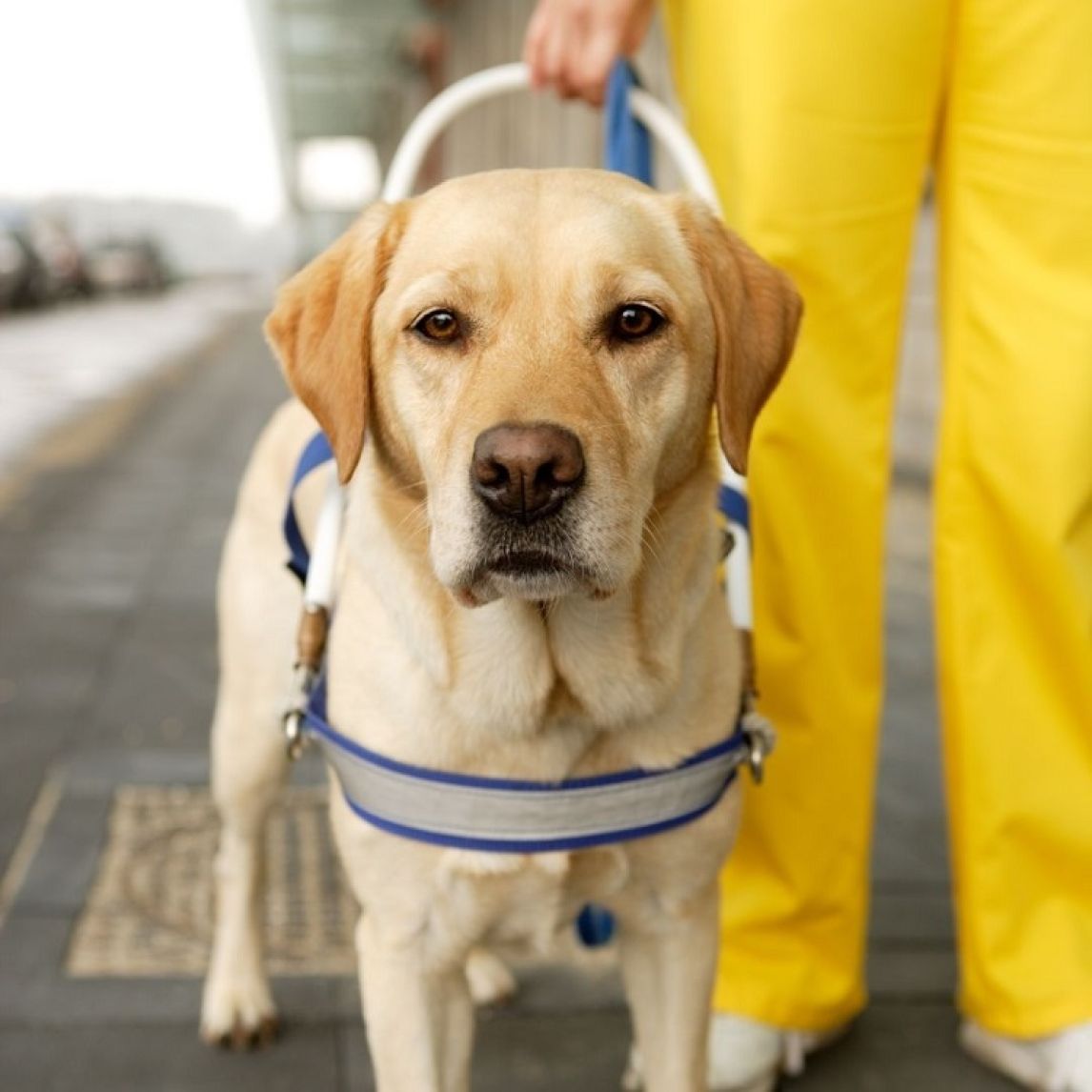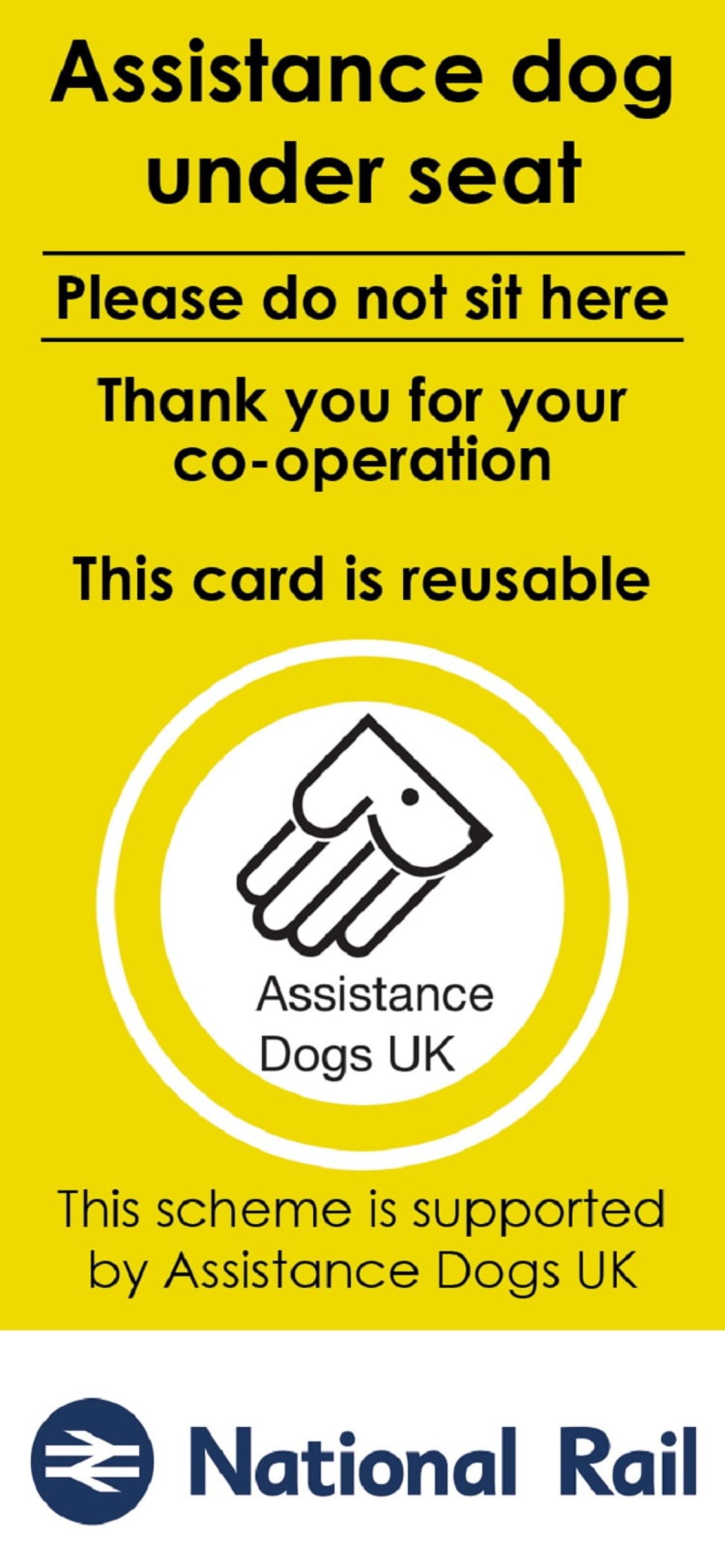Published on: Wednesday, 2 November 2022
Last updated: Wednesday, 2 November 2022
Above: An assistance dog on a station platform. Credit: RDG
Greater Anglia has joined an industry wide scheme that is providing thousands of people with physical disabilities or mental health problems with a handy laminated card that will help them educate fellow passengers.
The card explains why the assistance dog needs to sit under an unoccupied seat.
By raising awareness, this simple card should also improve the overall experience of passengers who want to travel by train with their assistance dog.
The cards can be particularly useful on services where it’s not possible to book a seat in advance – customers can simply place the card on the seat next to them to make other customers aware that the seat and the space under it should be kept free for their assistance dog.
The card is available on the Greater Anglia website for customers to download and print at home, or they can contact National Rail Enquiries to request one to be posted out to them.
The Rail Delivery Group has unveiled the guidelines following feedback to improve the journey for customers with assistance dogs.
Jacqueline Starr, Chief Executive Officer of the Rail Delivery Group, said: “We’ve all seen guide dogs when they are out and about supporting their visually-impaired owners. It’s less well-known that many of our other four-legged friends have their own skills and character quirks that help people with a range of support needs. These include people with physical disabilities and those with autism, epilepsy or other complex health conditions.
“Many of these conditions are not visible so we want to make life easier for the people whose daily lives they affect. Being able to place the card on the seat next to them – together with the other ID the dogs carry – should achieve that on their train journeys. It will also help fellow passengers adjust to the sight of assistance dogs doing their job while apparently relaxing under a spare seat.”
The cards, which were tested with charity Assistance Dogs UK, can also act as a red flag for customers who are allergic to dogs or afraid of them.
Vicky Worthington, Development Manager with Assistance Dogs UK, said: “More than 7000 people rely on a highly trained assistance dog from one of our member charities alone. They enjoy the greater independence that such dogs bring, including when traveling.
“We’re delighted to support this scheme and very pleased to see that rail companies are making it easier for disabled people and people with medical conditions to travel while educating the public about how these wonderful animals change – and even save – lives.”
Greater Anglia’s Accessibility & Inclusion Manager, James Bonehill, said, “We are really pleased to be involved in this new initiative because we want to make it as easy as possible for everyone to use our services.
“Our new trains offer a significant improvement in terms of accessibility and we are striving to improve accessibility in all other parts of the customer journey too, including customer service, station access, journey planning, information provision and making improvements in line with customer feedback.”
Below: The assistance dog card on a Greater Anglia train seat. Credit: Greater Anglia




